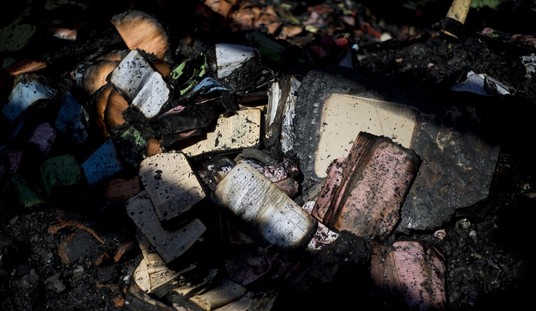If there is a better explanation, I am certainly open to hearing it.
Fitness guru Jillian Michaels (of “Biggest Loser” fame) has been railing against those who have adopted a keto lifestyle (those of us who have rarely call it a “diet”) for months now. I first read one of her anti-keto screeds last summer. She’s really increasing the whining in the last month or so it seems.
This past week, Michaels’ latest anti-keto screed gained a larger audience because she poked a bear she may not have wanted to — America’s favorite weatherman, Al Roker:
So @JillianMichaels says #Keto is a bad idea. This from a woman who promoted on camera bullying , deprivation, manipulation and more weekly in the name of weight loss. Now those sound like bad ideas
— Al Roker (@alroker) January 10, 2019
Social media has been flooded with people sharing their keto success stories since then, some not very politely. I was uncharacteristically nice when I tweeted her on the subject:
.@JillianMichaels I didn't need to eat this AM or take any energy gels with me on my bike ride today because I'm in ketosis and have energy to spare.
— SFK (@stephenkruiser) January 12, 2019
This will be a mild, non-scientific defense of keto, although I will point you to some physicians who can offer more in-depth arguments.
My experience with keto is both personal and anecdotal. I started experimenting with the “way of eating” (a description preferred over “diet”) in December of 2017. In the past year, I’ve had countless people share their personal keto success stories with me, both in person and on social media. I know that anecdotal evidence is not scientific, but when there is a preponderance of it a pattern emerges that is worth noting.
I began keto right after having the worst bout of the flu that I have ever experienced. Since then I’ve not only not gotten sick, I’ve lost almost 30 pounds and have had to buy smaller clothes twice. I have abundant energy and, for the first time in my life, am able to exercise portion control, largely because I’m not very hungry most of the time. The biggest boon, however, is that my lifelong sleep troubles have gotten immensely better. I was never able to sleep for more than two hours at a time and when I woke up it would take me a long time to go back to sleep, if I went back to sleep at all. Now I sleep for longer intervals and when I wake up I’m able to drift off again rather quickly. It has been life-changing.
There’s my story. My friend and PJ Media colleague Michael Walsh has one of his own:
I lost 75 pounds in 10 months on it. Plus all t The various aches and pains vanished. No CARBS!
— Michael Walsh (@dkahanerules) January 12, 2019
Back to Ms. Michaels. She gets so much wrong about keto that it is difficult to ascertain whether she is the most ignorant “expert” in the field or if she is deliberately being untruthful.
Let’s look at just a few very wrong things from Michaels’ anti-keto musings on her website (if I tried to hit everything this post would quickly turn into a book).
Ketosis is a considered a state of medical emergency.
That’s her opinion. Why don’t we check in and see what a physician has to say on the subject:
Ketosis is a natural state for the body, when it is almost completely fueled by fat. This is normal during fasting, or when on a strict low-carb diet, also called a keto diet.
Recapping:
TV Fitness Guru: “…state of medical emergency.”
Medical Doctor: “natural state for the body…”
Dr. Eenfeldt does say that there are “rare situations excessive ketosis can even become dangerous.” That can be said about almost anything. He remains a strong advocate for keto.
From the beginning of my keto journey, my source for information has been a friend who is a registered nurse, so she’s not exactly pulling her facts out of a hat or reading them in a women’s magazine. She recently said to me that Michaels might be confusing ketosis with ketoacidosis. This is something that is not uncommon, as Dr. Eenfeldt explains:
There are many misconceptions about ketosis. The most common is mixing it up with ketoacidosis – a rare and dangerous medical condition that mostly happen to people with type 1 diabetes if they don’t take insulin.
Even some health care professionals tend to mix up these two situations somewhat, perhaps due to the similar names and a lack of knowledge about the distinct differences.
Ketosis and ketoacidosis are not the same thing.
Ketosis is a 100% natural state, under full control by the body. It can be caused by a low-carb diet or by a brief period of fasting.
Ketoacidosis is a severe malfunction of the body, with excessive and unregulated production of ketones.
There is a viable option for those who would give Michaels the benefit of the doubt, which I am most assuredly not doing.
More from her site:
The next issue is that keto doesn’t advocate for calorie restriction.
That’s because the calorie restriction is pretty much built into the way of eating. The majority of the keto people I know, myself included, simply aren’t very hungry most of the time when we are in ketosis. As I mentioned earlier, portion control has been a wonderful byproduct of keto. I was always a voracious and overly indulgent eater. Now I will begin a day with a ten mile bike ride, drink some bulletproof coffee (coffee with healthy fats added) after, and often not eat a meal until around 6 PM. I used to always have seconds, and often thirds. Now one portion is usually enough.
Michaels’ next point is a little off the rails:
The keto diet does not address what types of proteins and fats are ideal
We’re back to the binary choice here: Michaels has either done ZERO research on keto, or she is being dishonest.
A random perusal of keto sites will offer up suggestions about which proteins are good for the keto lifestyle. The thing that is almost always covered on keto sites are which fats are good and which are bad. Her assertion that it doesn’t “address” this topic is unequivocally incorrect.
One of the most bizarre incorrect claims that Michaels frequently makes is that people in ketosis are “starving” our cells because we “do not eat” carbohydrates. I may not be a fitness guru or nutritionist, but I’m pretty sure that all of the spinach, broccoli, cauliflower, radishes, onions, peppers, mushrooms, and varieties of squash I regularly eat have some carbohydrate content.
Michaels also says on her site that we keto folk “cut out” fruits, which is another patent falsehood. Sure, we can’t eat a lot of them but no one in ketosis is saying, “Be gone, ye demon fruit!” In fact, one of my favorite keto breakfasts (on the rare occasions that I am hungry in the morning) is salmon, avocado, and blueberries. I also make a dessert with heavy whipping cream and strawberries.
America has been fed (pun intended) false information about nutrition for decades. One biased and utterly garbage study was used as the basis of the “Food Pyramid” that the federal government touted for half a century (watch “The Magic Pill” on Netflix). The Food Pyramid’s biggest accomplishment was to help make heart disease the number one killer in America.
Thanks, experts!
A huge industry has grown up around helping fat people not be fat. This is because there are so many fat people in America. Jillian Michaels has profited greatly in this industry. A New World Order in which people can lose weight simply by buying better groceries and not spending money on “fat burner” supplements (which Michaels sells) is bound to be disturbing to those who have made a lot of money under the old system.
Michaels’ complete lack of regard in her rants for the most basic facts about keto lead me to believe that she is more fearful of the easy-to-obtain benefits of the lifestyle than she is about the well-being of the dieting public.
I promised some resources for more information. Here are their Twitter handles, where they dispense a lot of great stuff to read:
I don’t advocate that everyone in the world adopt a high fat/low carb diet. I just know that it has worked wonders for me and many, many others.
I also know that almost everything Jillian Michaels says about it is wrong.










Join the conversation as a VIP Member